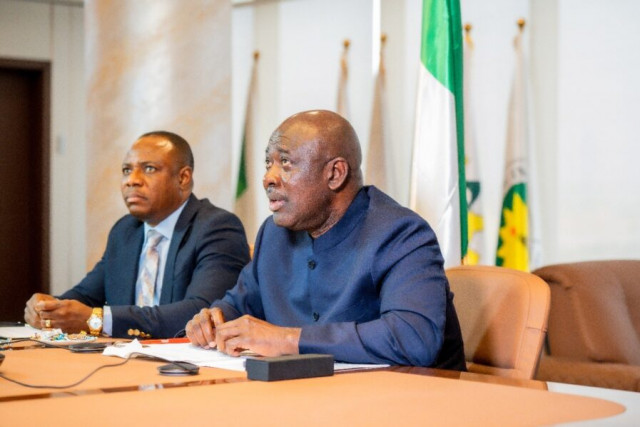The Federal Government expressed its worries on Tuesday about the growing number of idle and underdeveloped oilfields in Nigeria, warning International Oil Companies (IOCs) that they risk losing their underutilised assets.
During the Cross Industry Group (CIG) meeting held in Florence, Italy, the Minister of State for Petroleum Resources (Oil), Heineken Lokpobiri, stated that the administration led by President Bola Tinubu has created a favorable investment environment, and it is now imperative for IOCs to make substantial financial commitments to boost production.
At the meeting, which included key industry stakeholders, IOCs highlighted challenges from Engineering, Procurement and Construction (EPC) contractors as a major barrier to project execution. However, Lokpobiri rejected this as an excuse, asserting that EPC contractors would only participate once they observe concrete investment decisions from oil operators.
“The government has fulfilled its role by establishing investment-friendly fiscal policies, including the President’s Executive Order promoting deepwater investments. Now, it is up to the IOCs and other operators to make strategic investment decisions that will enhance production and sustainability in the sector,” he explained.
To combat stagnation in oilfield development, Lokpobiri reiterated that the Federal Government would start enforcing the “drill or drop” provisions outlined in the Petroleum Industry Act (PIA).
“We cannot allow assets to remain idle for 20 to 30 years without any development. If an asset is not being utilised and stays underdeveloped for decades, it adds no value to your financials or to us as a nation,” he remarked. To promote development, he urged IOCs to consider collaborative measures, such as farm-outs and shared infrastructure. Nevertheless, he made it clear that the government would not hesitate to reallocate dormant assets to investors willing to develop them.
“Like any accountable government, we will reclaim these assets and assign them to those ready to work,” he stated. The minister also highlighted the necessity for IOCs to support Nigeria’s growing refining sector. With additional refineries coming online, he noted that a reliable supply of crude oil will be vital for sustaining domestic fuel production and fulfilling export obligations.
“Increasing production is not merely about satisfying international supply commitments; it is also essential for ensuring that our local refineries have the necessary feedstock to operate efficiently,” Lokpobiri noted.
He further advised operators to prioritise farm-out agreements, particularly for assets situated near existing infrastructure, instead of investing in new Floating Production Storage and Offloading (FPSO) units that would lead to higher costs.
The Chairman of the Oil Producers Trade Section (OPTS), Osagie Osunbor, praised the minister for his proactive engagement with industry players and the government's dedication to creating a supportive investment climate.
“We appreciate the government’s initiatives to ensure a stable and appealing business environment. The minister’s interactions have provided invaluable insights and challenged us as industry players to intensify our efforts to enhance production,” Osunbor said.




















